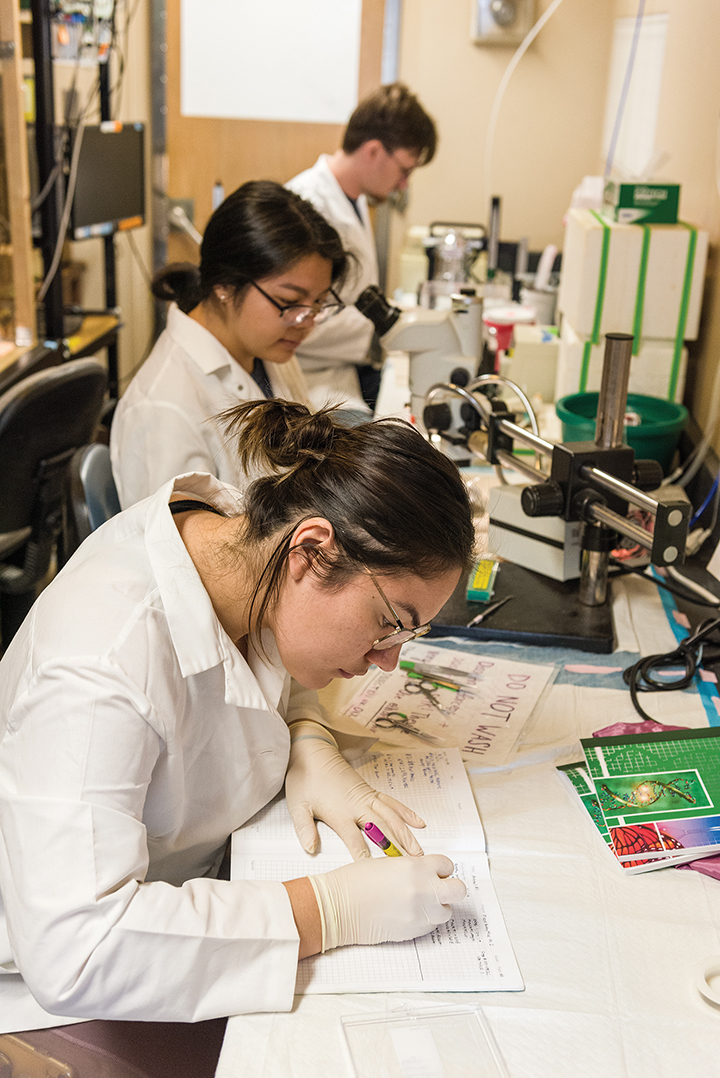Katherine Wilkinson
A Sense of Position: Motor Behavior

Human motor behaviors are complex. We require a perpetual sense of how our bodies are positioned in space to coordinate our movements. Specialized neurons in muscles sense length and movement, thus creating movement awareness, or proprioception.
Katherine Wilkinson studies sensory input during proper proprioception, as well as conditions leading to problems with balance and movement, and her research has made progress on both fronts. In collaboration with the Patapoutian Lab at the Scripps Research Institute, she pinpointed a mechanically sensitive ion channel that is necessary for stretch sensitivity.
“These findings could help identify therapeutics for proprioceptive disorders, and help develop better sensors for prosthetic limbs or robots.”
Wilkinson’s lab is operated entirely by students. Four of her former students are in Ph.D. programs, and two more have accepted offers to start Ph.Ds in the fall. Her lab alum have gone on to medical, pharmacy, and dental schools, as well as to careers in biotech companies.
Wilkinson expresses gratitude for her own mentors.
“I was encouraged to pursue undergraduate research by my freshman biology professor, and given a chance in my physiology professor’s lab,” she says. Her postdoctoral mentor was especially helpful, working with her “to develop a technique and research agenda that I could implement successfully at SJSU.”

Alexandra Salazar, ’20 Molecular Biology, Sarah Chu, ’20 Microbiology, and Nikola Klier, ’20 Molecular Biology, at work preparing for an experiment. Sarah (center) is dissecting the muscle and nerve that will be used to record sensory neuron firing rates in response to stretch. Alex (front) and Nikola (back) are taking notes in the lab notebook and preparing the rigs for the experiment.
Biological Sciences, College of Science
Sponsor: National Institutes of Health
SJSU Research Foundation 2019 Annual Report